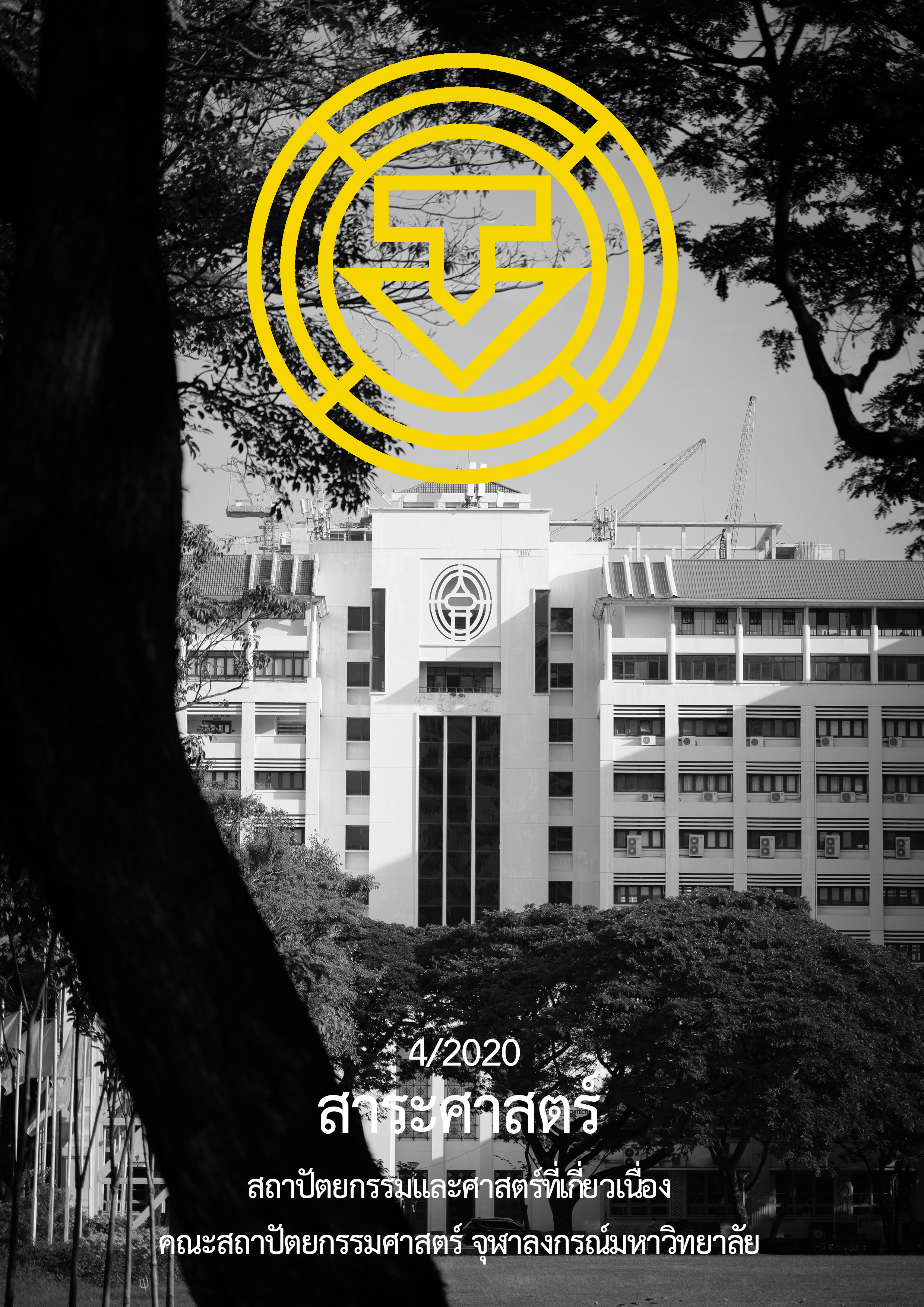Community Engagement for Public Space Upgrade during the COVID-19 Situation: Case Study from the Lockdown Period in Bangkok
Main Article Content
Abstract
The coronavirus 2019 or COVID-19 pandemic situation has a significant impact on human society. The Thai society has adopted the new social norms in a short period, including, but not limited to, increasing self-awareness of self-hygiene or social distancing as precautions to prevent the spreading of the disease. In Thailand, citizens strictly followed these precautions, especially during the city lockdown period from 22nd March to 31st May 2020. The conventional face-to-face public engagement and other social gathering process were canceled during the period. Many of the public space upgrading projects needed to adapt their public participatory procedure acutely. We observed and interviewed community-based, urban-design practitioners from 3 organizations who managed to arrange four community engagement processes during the lockdown. The adapted participatory tools were analyzed to find their efficacy for different scenarios of community engagement and their suitability for the organization's resources.
For the result, the tools can be classified into online-based and paper-based. The online-based tools are likely to be suitable for engaging a small group of participants who are willing to participate and are already digital literate. While the paper-based tools are more suitable for engaging with the larger group who are less digital literate, have low motivation to participate, and should be practicing in parallel with other incentive programs.
Article Details
References
Creighton, James L. (1981). The public involvement manual. Cambridge: Abt Books.
Churchman, A., (2012). Public participation around the world: Introduction to the special theme issue. Journal of Architectural and Planning Research, 1-4. Retrieved 2020, July 28, from https://www.jstor.org/stable/43030955
Department of Disease Control. (2020). Corona Virus Disease (COVID-19). Retrieved 2020, July 28, from https://ddc.moph.go.th/viralpneumonia/eng/index.php
Irvin, R. A. & Stansbury, J. (2004). Citizen participation in decision making: Is it worth the effort? Public Administration Review, 64(1), 55-65. Retrieved 2020, July 28, from https://onlinelibrary.wiley.com/doi /abs/10.1111/j.1540-6210.2004.00346.x
John Hopkins University. Center for Systems Science and Engineering. (2020). Coronavirus COVID-19 (2019-nCoV). Retrieved 2020, July 27, from https://gisanddata.maps.arcgis.com/apps/opsdashboard/ index.html#/bda7594740fd40299423467b48e9ecf6
Kwanchanok Kongchoksamai. Director, Shma Soen Co. Ltd. 2020, July 27. Interview.
Sanoff, H. (1999). Community participation methods in design and planning. New York: John Wiley & Sons.
Thai Public Broadcasting Service. (2020). ไทยสู้ โควิด-19. Retrieved 2020, July 27, from https://covid19.thaipbs.or.th /timeline/
World Health Organization. (2020a). Advice for the public. Retrieved 2020, July 27, from https://www.who.int/ emergencies/diseases/novel-coronavirus-2019/advice-for-public
World Health Organization. (2020b). Timeline of WHO’s response to COVID-19. Retrieved 2020, July 27, from https://www.who.int/news-room/detail/29-06-2020-covidtimeline
Yingyong Poonnopatham. Community Architect, Arsomsilp Community and Environment Architect Co.Ltd. 2020, July 27. Interview.


